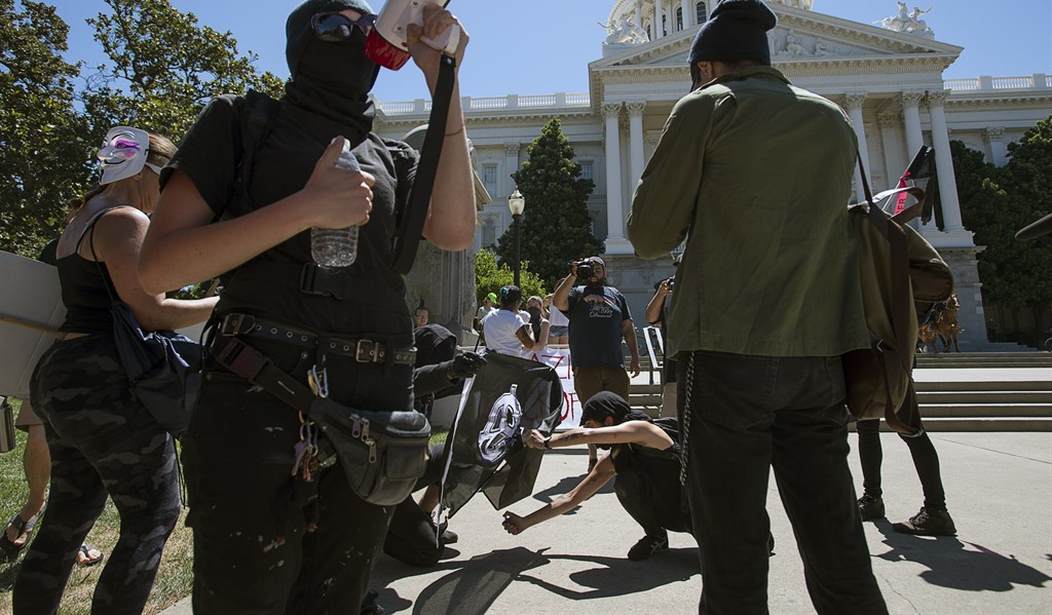Over the weekend, a journalist was brutally beaten in broad daylight on a public street. Such an event might be expected if it occurred in a third-world or dictatorial country. The fact that it happened in Portland, Oregon should rattle every American to the core. Luckily, that journalist, Andy Ngo, has been cleared to leave the hospital.
In what is likely a shock to those who have not been following similar events, a number of journalists and activists have either downplayed or attempted to justify the attack. Defenders of this crime have argued that Ngo’s reporting was critical of particular groups and therefore constituted violence and oppression.
There is growing support, especially among young Americans, for the idea that speech itself can constitute violence. In a recent study of undergraduate students, 81 percent agreed with the statement that “words can be a form of violence.” Over half of the students stated their belief that colleges should “forbid” speakers who have a “history of engaging in hate speech.” Of course, the students struggled to define hate speech, with two-thirds agreeing that “hate speech means something different to everyone.”
This idea has, in turn, led to actual, physical assaults. Just last week, Eric Trump was spit on while eating a restaurant. And in a vein similar to Ngo’s attack, a conservative student was punched on campus grounds recently because his attacker believed the student was “encouraging violence.”
The logic behind these confrontations should disturb anyone who believes in the value of rational debate. Advocates of the “speech is violence” philosophy argue that because certain speech is violence, physical violence is justified as a form of self-defense against speakers. Instead of arguing their case, these activists have found a much more effective means of making their point by physically silencing those with whom they disagree.
Recommended
Unfortunately, hostile groups have found physical retaliation to be a relatively risk-free act. Particularly in Portland, where Ngo’s attack occurred, city leaders have allowed violent groups to have nearly free rein during their events. In his response to the attack on Ngo, the president of the Portland Police Association begged the mayor of the city to “remove the handcuffs” from Portland’s officers so that they could actually work to stop violence in the city.
Protecting emotionally stirring speech has rarely been a popular position. But advocates of speech have long made arguments that are vital to our understanding of freedom today. In Abrams v. United States, Oliver Wendell Holmes dissented from the majority when he articulated the importance of protecting the speech of anti-war activists. Holmes argued that instead of silencing unpopular opinions by force, the best method for achieving good was to allow thoughts to be tested through the “competition of the market.” According to Holmes, the marketplace of ideas was the only way to find truth.
Decades later, Hugo Black issued a similar dissent in Feiner v. New York. In that case, police arrested Irving Feiner while he was issuing an inflammatory speech. The police argued, and the majority of the Supreme Court agreed, that the arrest was necessary to prevent a fight from breaking out. Justice Black argued that the police were focused on the wrong subject. Instead of arresting Feiner, Black wrote that the police should have protected him from hostile members of the crowd. To Black, the Court’s opinion granted a tyranny of the majority. The Court’s ruling in Feiner would seemingly allow police to shut down any unpopular speaker simply because the crowd might not want the speaker to be there.
While Justices Holmes and Black were in the minority of their time, their views gained judicial support in the latter half of the 20th century. In Brandenburg v. Ohio, the Supreme Court went so far as to affirm the rights of the KKK to present inflammatory and racist public speeches. Living in a marketplace of ideas means that even the vilest of ideas must be allowed to compete.
This American ideal has existed longer than America itself. Thomas Jefferson once wrote that as a student, he “was bold in the pursuit of knowledge, never fearing to follow truth and reason to whatever results they led." Our allegiance to the pursuit of knowledge through open inquiry has allowed us even to examine the personal shortcomings of Jefferson himself.
When speech is considered violence, however, no such examination can occur. Ngo’s attackers would rather silence an unsympathetic journalist than present their arguments in a rational manner. To the advocates of physical violence, these two options are morally equivalent. Under this view, Ngo was “asking for it” by publishing reports critical of groups associated with his attackers. To the perpetrators of this crime, their violent actions were an equal and justified response to Ngo’s reporting.
The fundamental battle for the soul of America in the 21st Century is not pro-life vs. pro-choice, pro-immigration vs. anti-immigration, or pro-tax vs. anti-tax. Instead, the fundamental battle is over our ability to hold these debates at all. The beauty of the American experiment is that we can disagree on just about everything without threatening the experiment itself. The experiment fails, however, once we permit the rationalization of physical violence in response to speech. Today, the left and right should be united in support of every American’s freedom to peacefully engage, argue with, and learn from each other.

























Join the conversation as a VIP Member